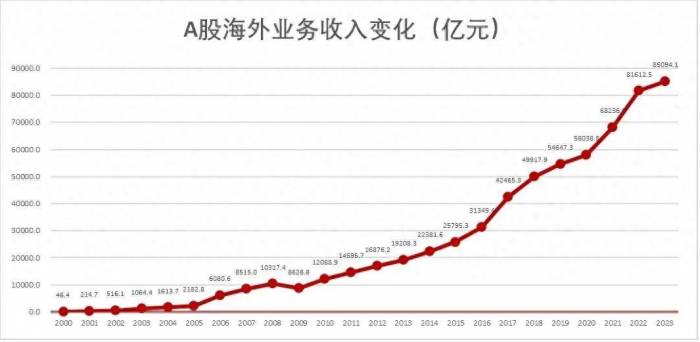Stock Markets: Catalysts for High-Quality Economic Growth
From a long-term perspective, the Chinese A-share market offers considerable investment value due to its close ties with the real economy of China. As the size of the Chinese economy grows and its structure optimizes alongside deep reforms in the capital markets, this connection becomes increasingly significant.
The robust fundamentals of the Chinese economy are evident in several aspects, such as a vast market scale, stable economic growth, the transformation and upgrading of industries, trends in consumption upgrades, and the rise of emerging industries. These factors provide abundant investment opportunities within the A-share market. If ongoing reforms in China’s capital markets further promote market-oriented, rule-of-law, and internationalized advancements, enhance the quality of information disclosure, and strengthen investor protection mechanisms, then the A-share market is likely to better reflect the high-quality development of the Chinese economy and play a more effective role in the allocation of capital resources.
In order to maintain the A-share market's sustained health and vitality, and to fulfill its role as a barometer of economic conditions and efficient resource allocation, regulatory authorities must take decisive action. This includes establishing a legal and regulatory framework that accommodates the development needs of modern financial markets, reinforcing adherence to regulations, and ensuring fair, equitable, and transparent trading. Strengthening market oversight to combat illegal activities, preserving market order, and guaranteeing fair competition among all market participants are crucial. Advancing the registration system reform, improving the delisting mechanism, encouraging the natural selection of listed companies, and enhancing resource allocation efficiency in the market are also essential. Supporting long-term institutional investors, such as pension funds and insurance capital, in participating in the market is necessary to stabilize market expectations and reduce volatility.
Raising the standards and requirements for information disclosure by listed companies will enhance market transparency, enabling investors to make informed decisions. Continuing to expand financial openness will attract more foreign investment into the Chinese market, thereby increasing market depth and liquidity while also introducing international best practices and management approaches. Through investor education, fostering rational long-term investment perspectives and curbing short-term speculative behaviors will help cultivate a healthy investment culture.
The A-share market is a crucial component of China's domestic capital markets, playing an essential role in the efficient allocation of capital resources. Through reforms in the stock issuance registration system, the market is establishing a more market-oriented pricing method for new stock issuances, allowing companies to raise funds based on their actual operational conditions and market demands, thus directing resources to enterprises with greater growth potential and profitability.
Mergers and acquisitions are critical pathways for optimizing resource allocation within the A-share market. Through mergers and acquisitions, companies can integrate upstream and downstream resources within the industry, break down industry barriers, and enhance industry concentration, thereby guiding capital towards areas that can yield the most economic and social benefits. A well-structured delisting mechanism contributes to a healthy market metabolism, wherein inefficient or underperforming companies are eliminated, freeing up capital that can be reallocated to superior enterprises, hence improving overall market efficiency.
Listed companies have access to various financing methods such as IPOs, additional share offerings, rights issues, and convertible bonds, providing diverse ways for firms across different development stages and industries to secure capital, facilitating reasonable capital flow across various fields. The A-share market connects real enterprises with a vast pool of investors, transforming savings into investments through various financial instruments such as stocks and bonds, assisting in the transformation and upgrading of the real economy, and supporting national industrial restructuring and the development of emerging industries. By continuously refining institutional design and reinforcing market mechanisms, the A-share market elevates capital allocation efficiency, which in turn fosters enterprise growth and industrial upgrading, while actively contributing to the sustainable development of China’s economy.
However, it is unavoidable that China’s capital market development faces several pressing challenges that necessitate urgent solutions and effective governance strategies. From the perspective of market system construction and reform, implementing a comprehensive stock issuance registration system, streamlining approval processes, strengthening information disclosure, and ensuring market-driven stock valuations will enhance overall market efficiency. Strengthening the delisting mechanism will promote market dynamism and competitiveness, eliminate poorly performing companies, and protect investor rights.
Looking at the increase in the proportion of direct financing, nurturing the healthy development of large, quality enterprises will enhance market attractiveness and raise the share of direct financing within social financing, thus alleviating pressures on the banking system. Expanding the issuance of various bonds, including corporate bonds, local government bonds, and others, will diversify bond varieties and establish a multi-tiered bond market.
In terms of perfecting the financial service system, establishing financial institutions to provide margin trading services for securities firms will address the funding source concerns of market intermediary service organizations, fulfilling the leverage demands of investors. Increasing support for the Small and Medium Enterprise Board, the Growth Enterprise Market, and the Sci-Tech Innovation Board will help mitigate the financing difficulties and costs faced by small and micro enterprises.
From the standpoint of market stability and risk management, it is essential to effectively resolve legacy issues related to stock ownership segregation, stabilize market expectations, and prevent significant market fluctuations. Establishing an effective risk monitoring and early warning system, along with stringent measures against insider trading and market manipulation, will safeguard the rights and interests of small and medium investors.
Focusing on building market infrastructure, enhancing the informatization of capital markets, and improving the security and efficiency of trading settlement systems is paramount. Reviving and innovating financial derivatives, such as government bond futures, will cater to firms' and investors' risk management needs.
With a global perspective on openness and international cooperation, attracting more foreign investors to participate in domestic capital markets is vital, promoting the maturity of cross-border connectivity mechanisms like the Shanghai-Hong Kong and Shenzhen-Hong Kong Stock Connect, and gradually loosening market access restrictions. Drawing on international practices and experiences to align accounting, auditing, and information disclosure regulations with global standards will also be beneficial.
China's capital market construction requires further deepening of reforms across multiple levels, including institutional innovation, market structure optimization, risk management, investor protection, and external openness, with the goal of creating a modern capital market system that is efficient in operation, robust in regulation, and well-governed by the rule of law.
Through these measures, the Chinese capital market is more likely to achieve sustained "sunny" growth and play a more significant role in global financial markets, better serving the real economy and showcasing the outcomes of China's high-quality economic development.






























Join the Conversation